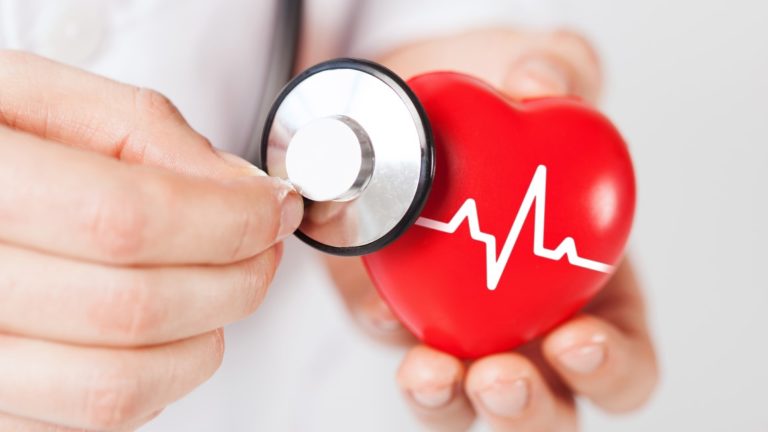
A brain aneurysm is a bulge in a blood vessel in the brain, according to the Mayo Clinic. It’s been described as looking like a berry hanging from a stem. While most aneurysms don’t rupture or create health problems, those that do trigger bleeding into the brain result in a hemorrhagic stroke.
Strokes can lead to serious consequences and are life-threatening. And if you’re experiencing any of the following symptoms, immediately call an ambulance or have someone take you to the ER—don’t drive yourself.
Sudden, severe headache
If you have a ruptured aneurysm, you might get a terrible headache—unlike anything you’ve ever experienced before. “It’s often described as the worst headache of your life,” says Mark McLaughlin, MD, FACS, who practices neurological surgery at Princeton Brain and Spine.
“The leakage of blood is irritating to the brain coverings, causing the pain.” It’s different than regular headaches in that the pain comes on very abruptly, and it’s severe and intense.
The onset of double vision or droopy eyelid
“This can be caused by an enlarging aneurysm that is pushing on the nerve that moves your eye,” says Dr. McLaughlin. If you suddenly have eye problems—double vision or your eyelids start to droop—you should call 911 immediately.
“This is not a ‘wait and see what happens’ situation,” says Dr. McLaughlin. Getting help quickly can save your life.
Weakness or numbness on one side of the body or face
Another sign that you might have a ruptured aneurysm is when half your face or only one side of your body starts to go numb. “This comes from tiny clots leaking out of the aneurysm that are clogging small vessels going to important areas of the brain,” says Dr. McLaughlin.
He explains that an aneurysm is like a blister with a thin wall that can pop and leak blood, wreaking havoc along the way.
Gastrointestinal issues
“When you have a [ruptured] brain aneurysm, nausea or vomiting can take place,” says Ronald Benitez, MD, chief of endovascular neurosurgery at Atlantic Health System’s Overlook Medical Center in Summit, New Jersey. “The bleeding and headache cause this.”
The headache starts first, and then you may experience nausea, vomiting, or diarrhea. Other common symptoms include bleeding, dizziness, light sensitivity, and a stiff neck. “These are all related to the bleeding,” explains Dr. Benitez, “or, in some cases, pressure in the head or the aneurysm pressing on related structures.”

























